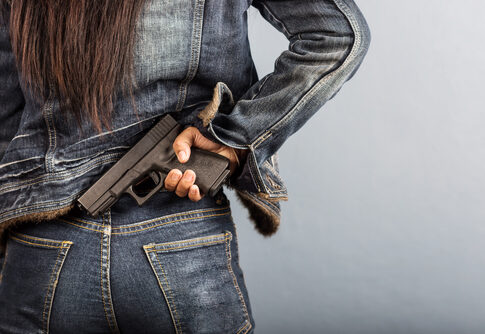Apart from the first amendment, nothing sparks a national debate like the second amendment. Donald Trump’s call for national concealed carry reciprocity brings to light the issue of second amendment rights and public safety. He has promised to sign concealed carry reciprocity legislation, which would allow people to travel from state to state with their weapons concealed. The legislation would make it legal to have a concealed carry permit across the United States. However, critics argue that the plan would reduce public safety and increase gun violence.
National Concealed Carry
Former President Donald Trump’s recent announcement in support of national concealed carry reciprocity reignited the gun rights debate. This proposal would allow people with valid concealed carry permits to legally carry firearms across state lines, in the same way that driver’s licenses are recognized nationwide. Trump’s position is consistent with his long-standing support for gun rights and dedication to preserving Second Amendment freedoms.
Gun rights advocates and conservative lawmakers have supported the former president’s proposal. Representative Thomas Massie introduced HR9534, the National Constitutional Carry Act, which seeks to establish permitless carry reciprocity across the United States. Massie contends that exercising a constitutionally protected right should not require government authorization.
Thank you, Mr. President, for the strong statement of support for my legislation — HR 38, The Concealed Carry Reciprocity Act! https://t.co/JXNh1j8nVR
— Rep. Richard Hudson (@RepRichHudson) November 11, 2024
Legislative challenge and opposition
Despite strong support from gun rights advocates, implementing national concealed carry reciprocity faces significant challenges. The Concealed Carry Reciprocity Act of 2017 passed the House but failed to pass the Senate. Current estimates indicate that similar legislation has a low chance of passing in the current political climate.
“No one should have to beg the government to exercise a constitutionally protected right anywhere in the country.” – Rep. Thomas Massie
Critics of the proposal, including law enforcement and gun control advocates, argue that requiring states to recognize other states’ concealed carry standards may reduce safety standards and increase gun violence. They argue that such legislation would undermine states’ rights to enact their own gun laws and could jeopardize public safety.
Trump announces federal reciprocity among all the states for people with a concealed carry permit, apparently oblivious to the 10th Amendment, which prohibits the federal government from forcing states to enforce federal law. Printz v. United States, 521 U.S. 898 (1997). https://t.co/7urQohLQPq
— Tom Mars (@TomMarsLaw) November 10, 2024
Potential Impact on Gun Violence
The debate over national concealed carry reciprocity occurs at a time when gun violence has been decreasing for two years in a row. Opponents of the proposal warn that loosening concealed carry laws could reverse this positive trend. According to studies, loosening concealed carry laws may result in an increase in violent crime, firearm robberies, gun thefts, workplace homicides and mass shootings.
Supporters of the bill, however, argue that expanding concealed carry rights would improve personal security and deter crime. They argue that law-abiding citizens should be able to defend themselves regardless of state lines.
Political Implications
Trump’s support for national concealed carry reciprocity is consistent with his larger political strategy of rallying support among gun rights activists and conservative voters. Throughout his political career, the former president has consistently advocated for Second Amendment rights, including appointing three Supreme Court justices who are known for their strong support for gun rights.
“A driver’s license works in every state, so it’s common sense that a concealed carry permit should work in every state” – Trump
As the debate over gun rights and public safety continues, the issue of national concealed carry reciprocity remains a divisive issue in American politics. While supporters see it as a necessary step toward protecting Second Amendment rights, opponents argue that it may jeopardize public safety and state autonomy. The outcome of this debate will most likely be determined by the political landscape following future elections, as well as lawmakers’ ability to bridge the gap between gun rights supporters and those advocating for stricter gun control measures.
Sources:
- Trump says mass shootings are not ‘a gun problem’ as 2024 GOP hopefuls pledge loyalty to the NRA
- Massie Answers Questions on Permitless Carry Reciprocity and Donald Trump


